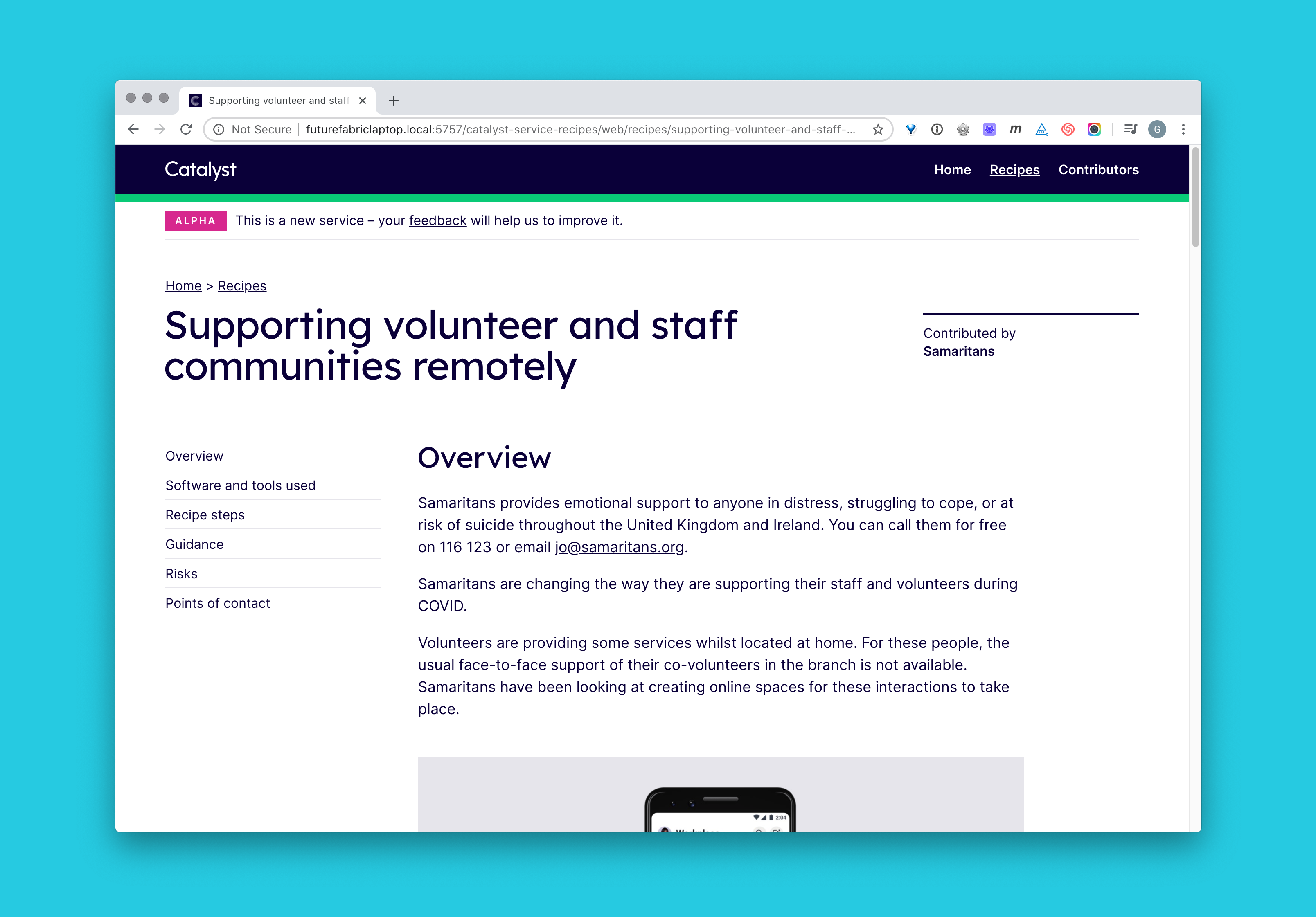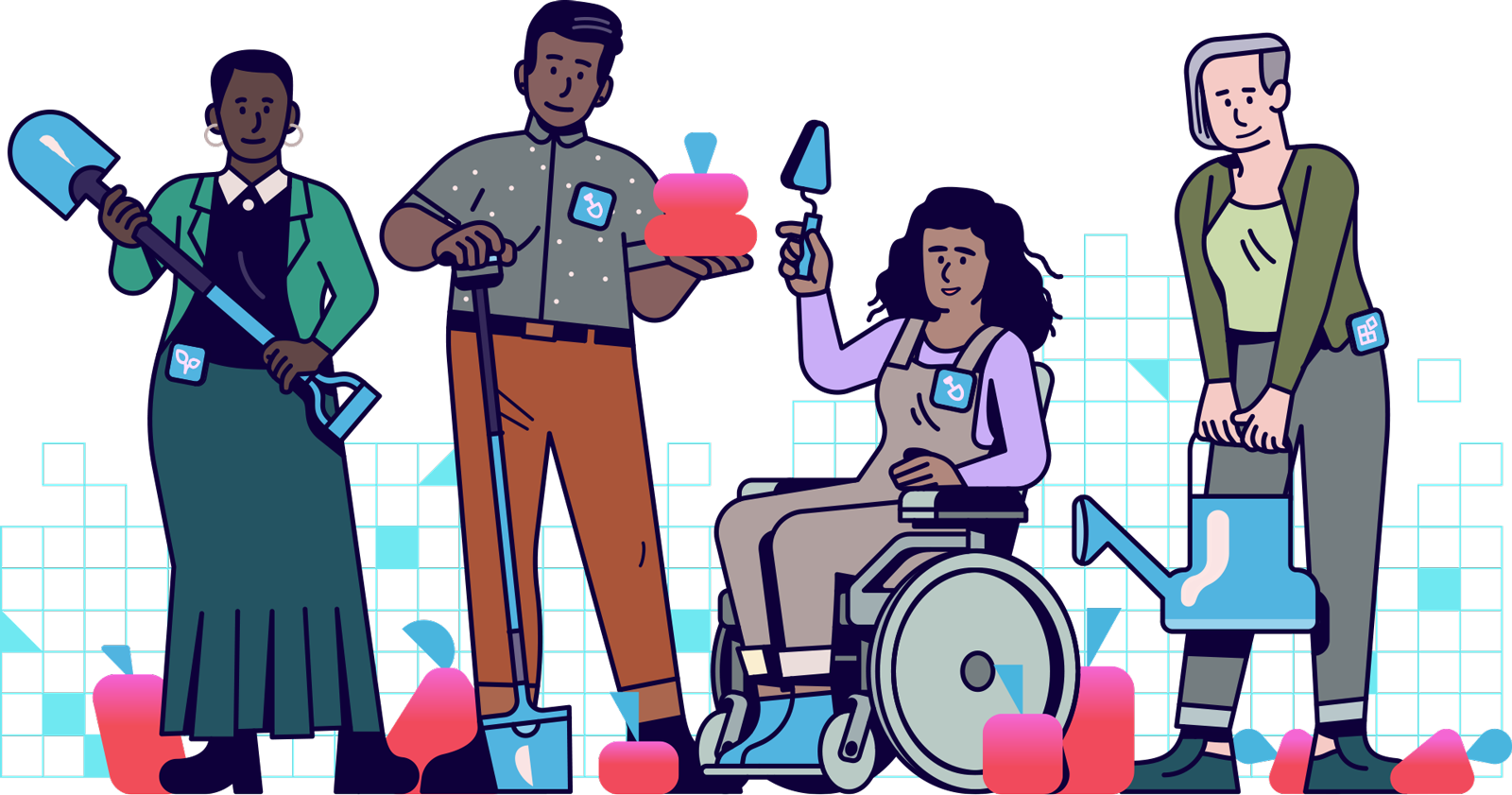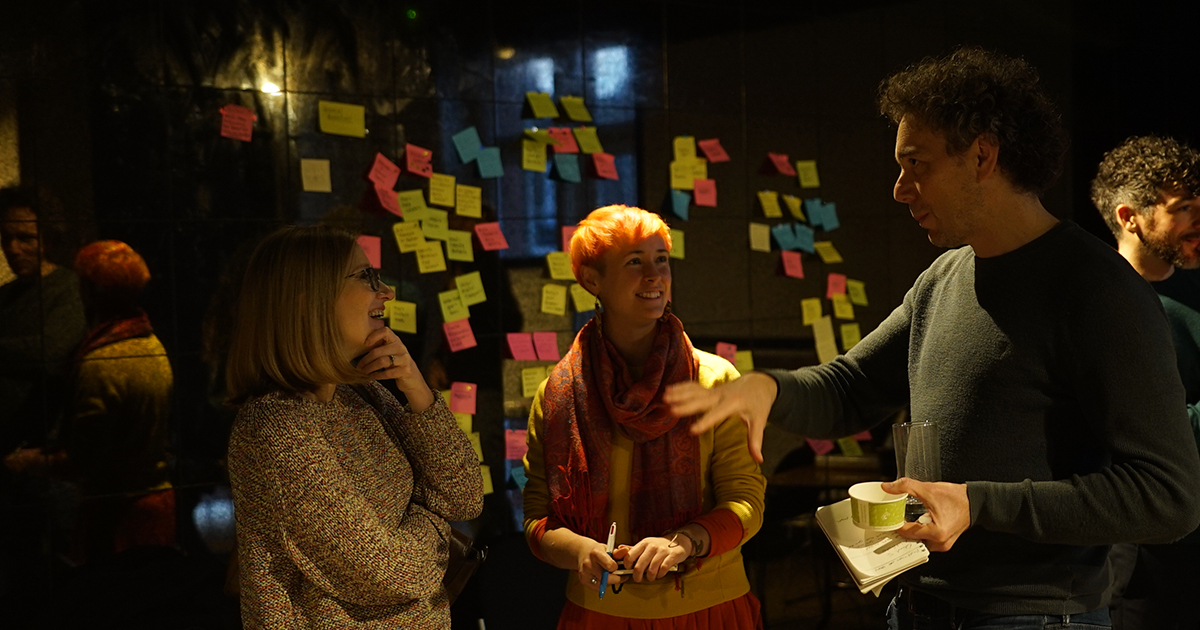
This week we have five new recipes, contributed by a range of charities, some who have had a strong digital focus for years and others who are just starting out.
Last week, the service recipes for charities platform went live! Catalyst with FutureGov, Snook and CAST are delighted about the positive feedback we have received so far. Thank you so much for your warm welcome and support!
As mentioned in earlier blog posts, the platform collects practical examples to help charities reuse and learn from one another’s digital services. We have been referring to these as recipes: they show the ingredients and steps needed to deliver a service.
We launched it last week with three live recipes by We Are With You, Young Somerset and Being Woman. We'll be aiming to publish new recipes every week and if you would like to contribute as well, you can fill in this form or send us an email at recipes@thecatalyst.org.uk.
This week we have five new recipes, contributed by a range of charities, some who have had a strong digital focus for years and others who are just starting out.
Citizens Advice Manchester introduced a new tool to staff so that they could launch a service to answer queries out of hours. Their recipe includes how they launched the service rapidly by involving front line staff, making training videos and starting small.
Scope’s first recipe looks at how they have been digitising their resources and sharing them online. Activity sheets used in workshops and support sessions are now in PDF format for digital use. They have also developed a secure online portal on their website where these materials are uploaded for clients to access.
Scope has also been using video conferencing platforms in order to continue providing support to their clients. This second recipe looks at how Scope made the shift from face-to-face to online group sessions using Zoom. In doing this, Scope was also able to reduce the pressure on their phone service.
Samaritans volunteers are providing emotional support whilst working at home. The usual face-to-face support of their co-volunteers in the branch is thus not available. In this recipe, we cover how Samaritans have been creating online spaces for these supportive interactions to take place.
In response to COVID-19, Settle has adapted their service to be delivered over the phone as some of their clients don’t have access to the internet. In order to provide this service they must get consent. As a result this recipe shows how Settle has been collecting consent via text messages.
We would like to thank all the charities who have already provided us with service recipes about the challenges that they’re currently facing and services they are providing.
We've already spoken with some of you and have taken a note of your suggestions. These range from having a search feature later down the line when the library has more recipes, to including sections about GDPR, privacy and security for each recipe.We hear you and everything is collated in an ever-growing list of features to be prioritised for the next release. One of the key ideas we are working on at the moment is the ability to navigate and filter recipes using labels that relate to who they are for (beneficiaries), what they do (service pattern) and how they are supporting people in a specific moment of their life (life event). If you want to know more about this, we’ve talked about service patterns and life events here.
This said, it’s early days for this initiative and therefore it’s vital for us to know if the recipes have helped you and your organisation build a new service, or improve an existing one. We would like to hear from you, whether for general feedback or to share how you’ve used an existing recipe.
Last week, the service recipes for charities platform went live! Catalyst with FutureGov, Snook and CAST are delighted about the positive feedback we have received so far. Thank you so much for your warm welcome and support!
As mentioned in earlier blog posts, the platform collects practical examples to help charities reuse and learn from one another’s digital services. We have been referring to these as recipes: they show the ingredients and steps needed to deliver a service.
We launched it last week with three live recipes by We Are With You, Young Somerset and Being Woman. We'll be aiming to publish new recipes every week and if you would like to contribute as well, you can fill in this form or send us an email at recipes@thecatalyst.org.uk.
This week we have five new recipes, contributed by a range of charities, some who have had a strong digital focus for years and others who are just starting out.
Citizens Advice Manchester introduced a new tool to staff so that they could launch a service to answer queries out of hours. Their recipe includes how they launched the service rapidly by involving front line staff, making training videos and starting small.
Scope’s first recipe looks at how they have been digitising their resources and sharing them online. Activity sheets used in workshops and support sessions are now in PDF format for digital use. They have also developed a secure online portal on their website where these materials are uploaded for clients to access.
Scope has also been using video conferencing platforms in order to continue providing support to their clients. This second recipe looks at how Scope made the shift from face-to-face to online group sessions using Zoom. In doing this, Scope was also able to reduce the pressure on their phone service.
Samaritans volunteers are providing emotional support whilst working at home. The usual face-to-face support of their co-volunteers in the branch is thus not available. In this recipe, we cover how Samaritans have been creating online spaces for these supportive interactions to take place.
In response to COVID-19, Settle has adapted their service to be delivered over the phone as some of their clients don’t have access to the internet. In order to provide this service they must get consent. As a result this recipe shows how Settle has been collecting consent via text messages.
We would like to thank all the charities who have already provided us with service recipes about the challenges that they’re currently facing and services they are providing.
We've already spoken with some of you and have taken a note of your suggestions. These range from having a search feature later down the line when the library has more recipes, to including sections about GDPR, privacy and security for each recipe.We hear you and everything is collated in an ever-growing list of features to be prioritised for the next release. One of the key ideas we are working on at the moment is the ability to navigate and filter recipes using labels that relate to who they are for (beneficiaries), what they do (service pattern) and how they are supporting people in a specific moment of their life (life event). If you want to know more about this, we’ve talked about service patterns and life events here.
This said, it’s early days for this initiative and therefore it’s vital for us to know if the recipes have helped you and your organisation build a new service, or improve an existing one. We would like to hear from you, whether for general feedback or to share how you’ve used an existing recipe.

Support & services
Our free services help you make the right decisions and find the right support to make digital happen.
Learn what other non-profits are doing
39+ organisations share 50+ Guides to how they use digital tools to run their services. Visit Shared Digital Guides.

CAST and Catalyst: the journey, the transition - and beyond






